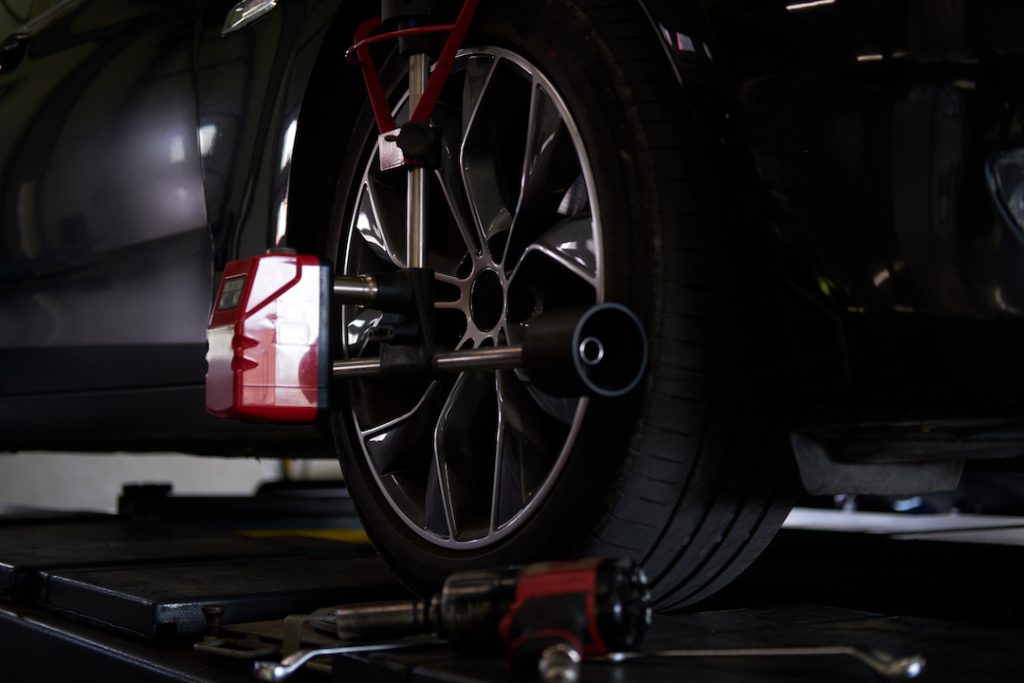Looking after your car tyres is an important part of regular maintenance and looking after your vehicle. We pay a lot of attention to your car tyres because they are a vital part of:
- safety on the road – for you as well as for other road users
- ensuring a comfortable driving experience
- allowing you to get the best fuel efficiency as you drive
- helping to keep your overall vehicle in good condition
Think of your tyres as the foundation of your driving experience – keeping you in contact with the road, steering you in the direction you want to go, and helping to control your speed to keep you safe.
If you’ve ever had a flat tyre, you know how unsettling it is to have one of your tyres not working. All of a sudden your car is struggling, the ride is uncomfortable, and you lose control over your speed and steering. That’s your reminder of how much you depend on all four tyres being in top shape for a smooth ride.
What do we check when we inspect tyres?
At Roskill Auto Mechanical we can give your tyres a thorough check and service with our Tyre Care Package, or we can have a quick look if there is something specific you’re concerned about.
Some of the things we check when we look after your tyres include:
- checking that the tyre is properly attached to the wheel rim
- looking for any unusual lumps or bulges
- looking for any damage to the tyre structure
- checking for exposed or cut cords
- looking for any nails or sharp objects stuck or embedded into the rubber
- checking for other damage or perishing due to use or age
- checking the tread depth and condition
- checking the tyre pressure of each tyre
In a more comprehensive service we will also check your wheel alignment and wheel balance and if required, conduct a tyre rotation.
What can you inspect yourself?
There are several things you can easily check yourself, in between your regular car service appointments or visits to the mechanic:
- look for nails or sharp objects, particularly if you know you’ve driven over glass recently or through a building site
- regularly check your tyre pressure
- check your tyre tread for damage and tread depth
Why is tyre tread so important?
Tyre tread refers to the grooves on the surface of a tyre. All tyres have different patterns on them, and this isn’t simply a decorative feature. The grooves help the rubber grip the road. If a tyre was completely smooth, with no grooves or tread, it would have nothing to grip the surface it’s on and it would slide. There would be no traction as the wheel turned.
If you’ve ever tried to walk in shoes that have completely smooth soles with no tread, you’ll know the feeling. There is nothing to grip the floor with, so you slip and slide, and feel very unsteady. That’s the same thing that happens when you try to move a vehicle with insufficient tread – only you’re slipping and sliding at greater speeds.
Having sufficient tyre tread on all tyres helps you maintain control of your vehicle. It’s incredibly important for safety and it is a legal requirement.
Why is tyre pressure so important?
Tyre pressure refers to the amount of air in your tyres, and is measured in PSI, which stands for pounds per square inch. Checking your tyre pressure regularly and maintaining accurate tyre pressure is important for a number of reasons:
- Correct tyre pressure helps your tyres last longer – over-inflated or under-inflated tyres will wear incorrectly and are more prone to punctures and other damage
- Adequate tyre pressure helps with fuel efficiency – when your tyres have the right amount of air in them, they create a smoother drive and your car isn’t fighting to grip the road or steer correctly
- Proper tyre pressure creates a more comfortable ride – you’ll notice the difference in comfort when you have your tyres inflated to the correct level
- Accurate tyre pressure improves overall safety – with the right tyre pressure, your steering, braking, acceleration and overall handling are all optimised.
Your tyres and your WOF
Most people already know that the transport agency requires you to maintain a minimum specified tyre tread for your vehicle to pass its Warrant of Fitness (WOF). That measurement is 1.5mm. We like to emphasise that 1.5mm is the minimum. That’s not the ideal length, remember. So we urge you not to wait until your tyre tread is that low before changing your tyres.
There is also a long list of other mandatory requirements that must be met regarding your tyres and wheels in order for your vehicle to pass its WOF check. When you bring your car to us at Roskill Auto Mechanical we ensure that your car meets all of its requirements.
To give you an idea of how detailed the transport agency requirements are, here are a few more requirements you must meet:
- Tyres on the same axle must be of the same size designation and construction, and of the same tread pattern type.
- A vehicle must not be fitted with a metal tyre or other non-pneumatic tyre, or with a tyre with studs, cleats, lugs or other gripping devices.
- A wheel must be compatible with the tyre rim profile, flange height and valve fitment.
- A tyre must be of good quality and construction, fit for its purpose, and maintained in a safe condition.
- A tyre that is fitted to a vehicle must be maintained at a safe inflation pressure.
- If the vehicle carries a spare tyre, the tyre must be securely attached on or in the vehicle.
- A space-saver tyre carried in a vehicle must have a safety warning label that identifies that the tyre is for temporary use only, and that the vehicle must not be operated with a space-saver tyre at a speed of more than 80km/h or at a lesser speed specified by the tyre manufacturer.
These points are just some of the requirements listed as part of the NZ government’s requirements. We highlight these here to demonstrate just how comprehensive and detailed the rules are. Our job is to help you meet all of the requirements and to keep you safe on the road.
How long should tyres last?
Tyre manufacturers are usually hesitant to specify how long tyres will last. This is because there are so many factors that affect the condition of your tyres.
How long your tyres will last is affected by factors such as how much you drive, the weather you drive in, the terrain or environment you drive in, the weight of your vehicle, whether you tow a trailer or any other weight, how aggressively or carefully you drive, how often you service your vehicle, etc.
The two things most tyre manufacturers agree on are:
- It’s important to have your tyres checked regularly – aim for once a year
- If your tyres haven’t been replaced 10 years after their date of manufacture, it’s recommended that you replace them
How to get the most out of your tyres
There are a few things you can do to extend the life of your tyres safely. Check them regularly for damage or wear and tear. Drive responsibly. And have your tyres regularly checked and serviced.
Get in touch with us at Roskill Auto Mechanical and we can look after all of your tyre service needs.
Contact us online or call us on 092421870 for a free quote or to book an appointment.

